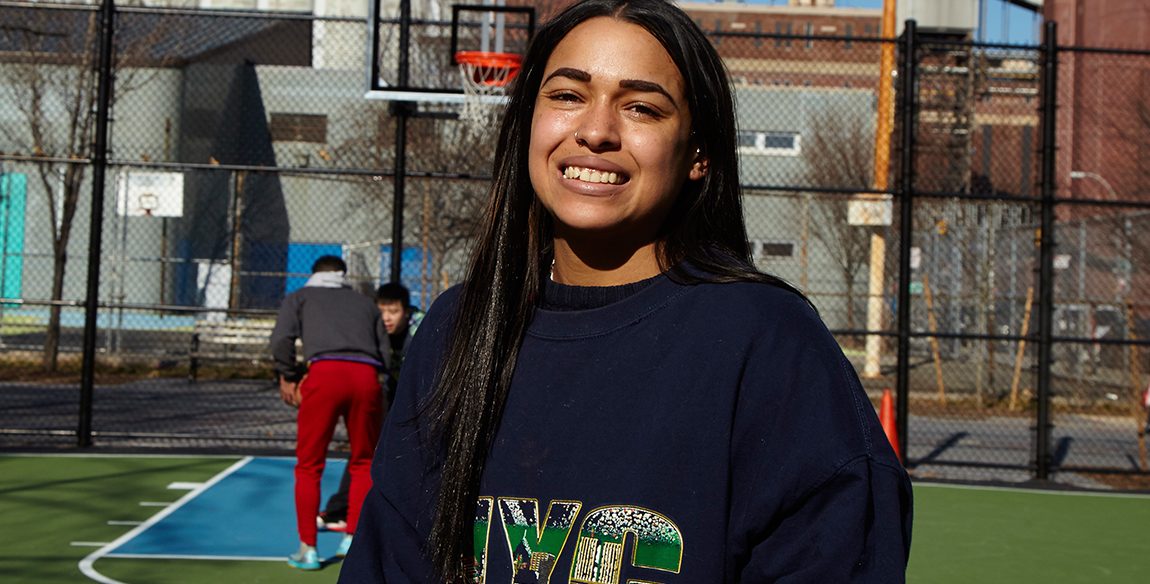Strong Voices: Princess Nokia
Princess Nokia’s name intertwines and contradicts elegance and durability. Coincidentally, the name of her new re-release Metallic Butterfly shows the same oxymoron. If anyone could embody both of these elements simultaneously in music and personality, it is her. Princess Nokia’s real name is Destiny Frasqueri. She...
Princess Nokia’s name intertwines and contradicts elegance and durability. Coincidentally, the name of her new re-release Metallic Butterfly shows the same oxymoron. If anyone could embody both of these elements simultaneously in music and personality, it is her. Princess Nokia’s real name is Destiny Frasqueri. She hails from New York City and gains much of her strength and inspiration from her childhood there. At ten, she lost her mother to AIDS and went through the foster care system before running away to live with her grandmother on the Lower East Side. At that same age, she started writing her rhymes. Her songs draw partly from these experiences of growing up in the city but also highlight the geekier aspects of her personality. Frasqueri is unashamed of her nerdy side. Recently, she released her debut 2014 album Metallic Butterfly on Spotify as a celebration of her self-defined “genesis” and its four-year anniversary. When tweeting about her re-release of Metallic Butterfly to Spotify, she writes, “Its visual and audio aesthetics were deep-rooted in anime, cosplay, witchcraft, feminism, and cybergoth/rave culture.”
These might seem like odd sources for a rapper to pull from, but Frasqueri owns it. Her Instagram is filled with equal parts cosplay and luxurious photos of her around New York and other cities. Rather than identifying as only a female rapper, she asserts the full extent of her interests in her work. She makes room for women, with all of their interests, in the rap scene. This is why, although she identifies as a rapper, Princess Nokia’s music defies genre. She doesn’t allow a genre to define all of the influences of her sound. Frasqueri’s music pulls from wherever her inspiration lies instead of conforming to definitions. As she says, “Metallic Butterfly was way ahead of its time. It featured trip-hop, jungle, R&B Neo Folk, adult contemporary, grime, and Afro Caribbean Canto.”
However, Frasqueri’s music is not the only reason she should be considered a role model. She is a strong proponent of intersectional feminism, identifying as an Afro-Indigenous queer woman, according to Vogue. Frasqueri also started her own podcast called Smart Girls Club. The podcast, as she described to the Guardian, is a place to “talk about urban feminism, sexuality, relationships, spirituality, music, art, and interview people and laugh and make fun of myself.”
And her feminism and advocacy aren’t limited to statements or projects. Two incidents in 2017 contextualize her at her best, tackling the daily offenses of New York City in any way she can. At a concert at Cambridge University, she stopped a concert to confront a white male student she saw mouthing obscenities at her. She also threw a container of soup at a man yelling racist obscenities on a train in New York City. None of this should be taken to mean that Frasqueri incites violence. Rather, she takes it upon herself to confront racism and bigotry where she sees it. She takes her activism and beliefs with her wherever she goes, from the concerts to the subway. That relentlessness is something we should all be thankful for.
Check out her music video for “Dragons” below.

